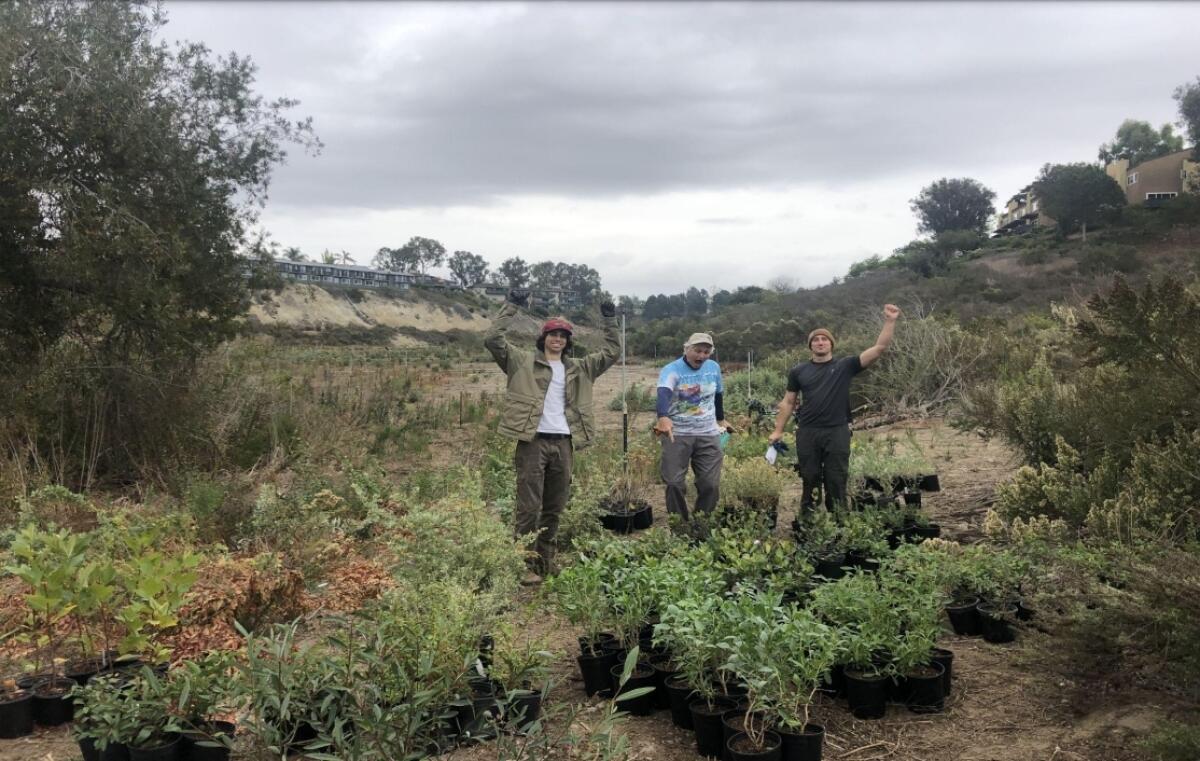Big Canyon restoration project in Newport Beach to begin third phase in fall 2024

- Share via
Construction for the third and final phase of the Big Canyon restoration project is now scheduled for fall 2024, according to the Newport Bay Conservancy, having received final approvals for a coastal permit application from the state Coastal Commission on Thursday.
The final phase affects 29.5 acres of Big Canyon Nature Park, one of the biggest tributaries to upper Newport Bay. Roughly 45 acres of the park are designated as Big Canyon Nature Park and owned by the city of Newport Beach, while the lower 15 acres are owned by the California Department of Fish and Wildlife. That section lies within the Upper Newport Bay State Ecological Reserve, where Phase III will take place.
The first phase included hydrology improvements in the northernmost 6 acres, while the second focused on restoration and drainage improvements in the 11.3 acres of the canyon immediately to the west of the Phase I site, according to Coastal Commission staff. Phase II was completed in 2021.
The final phase seeks to address restoration of the native salt marshes, realignment of existing freshwater flows to improve drainage and water quality, and final improvements to the existing public trails and signage throughout the park.
As part of the approval, the Coastal Commission required a habitat restoration plan, nesting bird protection measures, herbicide use protocols, other agency approvals, construction best-management practices, a construction staging plan, assumption of risk and protection of archaeological and tribal cultural resources.
The restoration project is organized through the efforts of the Newport Bay Conservancy, the city of Newport Beach and CDFW.
“On behalf of the project partners, we thank the Coastal Commission for its ongoing support of this important project, which has already made significant progress in the first two phases,” Newport Beach spokesman John Pope said following the approval Thursday. “The Big Canyon restoration removes a major mosquito breeding area, creates an open water area for marine birds and animals, eliminates invasive plants and restores native plants. We encourage the public to view the restoration efforts and educators to lead ecological tours of the area.”
Newport Bay Conservancy restoration manager Alys Arenas said the conservancy is waiting on other permits, but the delay in construction is because of the nesting and breeding seasons, which span from March to September.
“We have a short window from Sept. 15 to March 15 to get any ground-moving work, basic removal, planting, and then it’ll fall into monitoring and maintenance period. The short term will be 120 days, but after that, it’s three to five years of monitoring and maintenance before it can be called complete,” Arenas said.
“It is a unique area. You can consider this area a transitional zone. It’s a buffer between our wetland habitats and ... it’s significantly important because of long-term sea level rise,” Arenas continued. “As we get higher sea level rise, there’s going to be a higher marsh for the water to recede and for the wildlife to rely on as we do expect some of our marsh to be underwater in 50 years. It’s important that, as well as aside from recreational activities, we provide habitat for wildlife and educational benefits.”
Phase III is projected to cost about $6 million. The total cost for the permitting, planning, design and implementation of all three phases is estimated to be between $10 million and $11 million.
All the latest on Orange County from Orange County.
Get our free TimesOC newsletter.
You may occasionally receive promotional content from the Daily Pilot.




